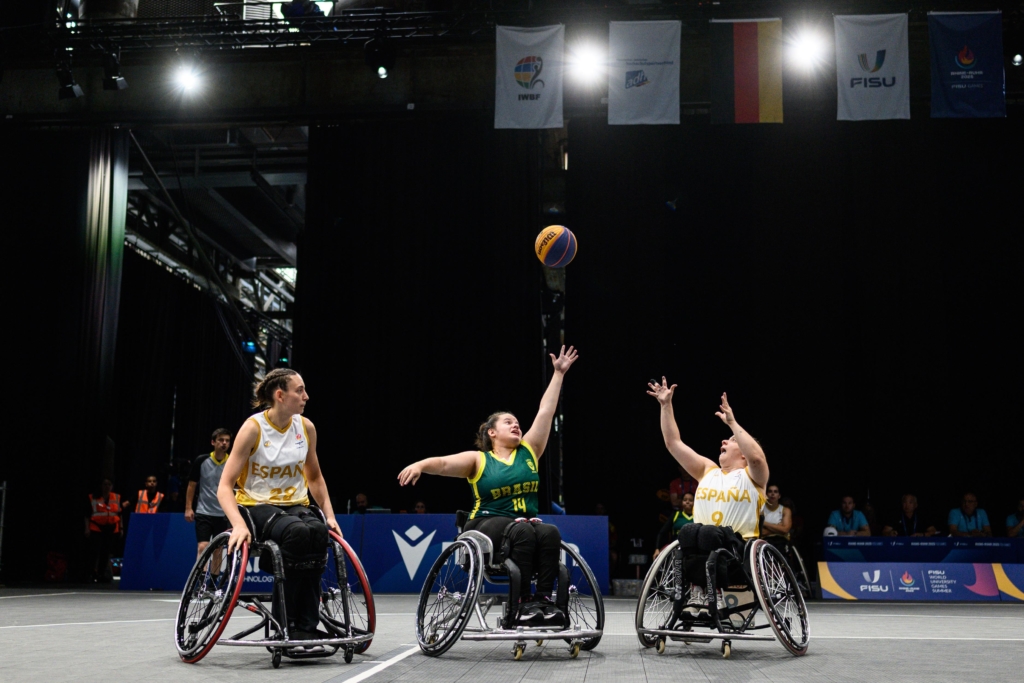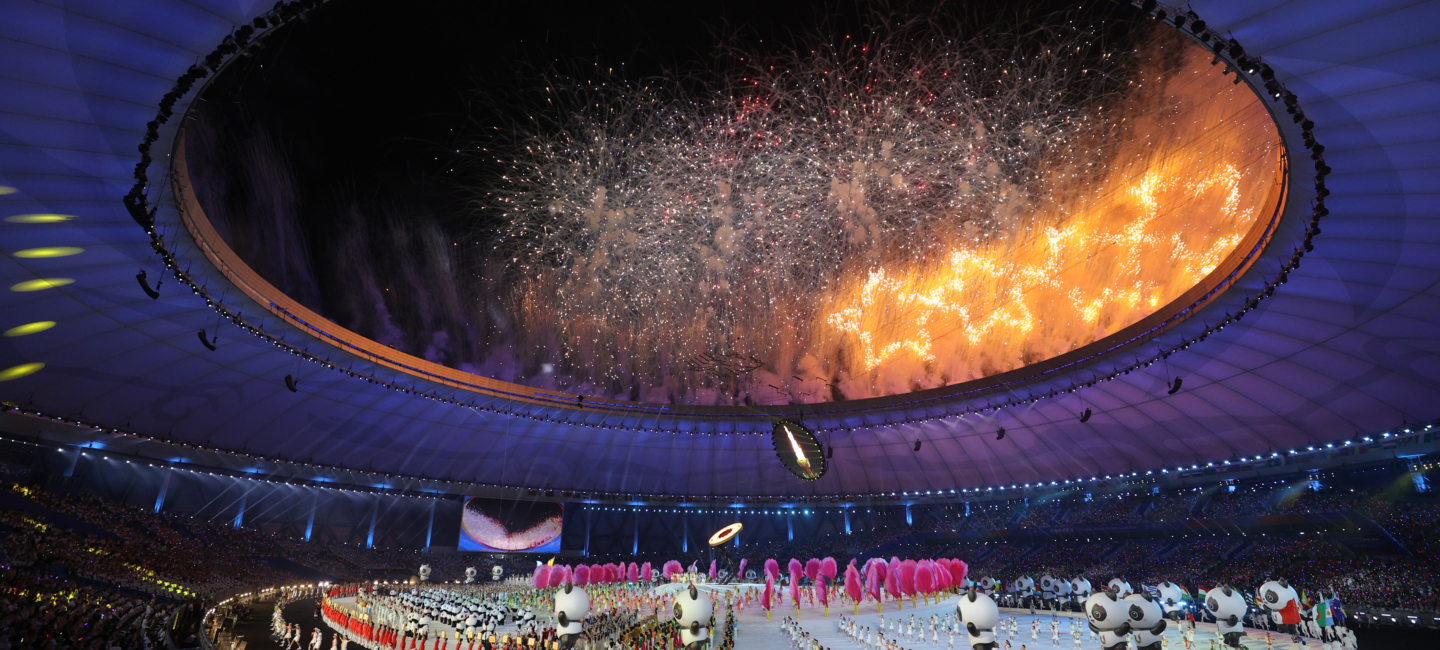The FISU Summer World University Games are staged every two years in a different city. This celebration of international university sports and culture draws many thousands of student-athletes together to compete, making it among the world’s largest and most prestigious multi-sport events.
Embracing the FISU motto of Excellence in Mind and Body Through University Sport, the summer edition of the FISU World University Games incorporate educational and cultural aspects, encouraging student-athletes from around the world to combine high sports performance with their intellectual pursuits.
The twelve-day FISU World University Games competition programme includes fifteen compulsory sports. To stay at the forefront of sports development and innovation, organisers may also include up to three optional sports from the FISU Recognised Sports list and the FISU World University Championships programme into their event.
Since the Rhine-Ruhr 2025 FISU World University Games edition, a para-sport was also introduced, where para-student-athletes compete alongside their teammates on the same day and at the same venue. In Germany, it as wheelchair 3×3 basketball.
In 2003, the Daegu Summer Universiade saw a record 174 countries compete in the Republic of Korea. A decade later, the Kazan 2013 Summer Universiade drew a record 11,759 participants to this Russian city.
The largest global multi-sports event for student-athletes.
12 days Of sports competitions
10,000 + student-athletes And officials from over 150 countries
300 million viewers Broadcast to more than 100 countries, drawing over 300 million viewers
Events
Related News
All newsThe Chengdu FISU World University Games
After two postponements in 2021 and 2022 due to the pandemics, the Chengdu FISU Games finally took place from 28 July to 8 August 2023 in the Chinese megacity.
The 21 million people Sichuan’s capital witnessed over 6,500 student-athletes from the five continents compete in 269 medal events. The Games featured 18 sports (artistic Gymnastics, swimming, badminton, athletics, fencing, table tennis, basketball, volleyball, judo, archery, water polo, taekwondo, diving, tennis, rhythmic gymnastics, wushu, shooting sport, and rowing). Competitions were held in 45 different sports venues, including 13 newly built for the FISU Games.
The host nation captured an impressive total of 178 medals at the Chengdu FISU Games, surpassing its previous-best tally of 146 from Shenzhen 2011. China’s performance ranks second all-time for a single FISU Games behind Russia’s whopping 287 medals – also on home soil – at Kazan 2013.
But the Chengdu FISU Games were also a fostering ground for unprecedented feats. Rose Yeboah, who won athletics gold in women’s high jump, became the first female athlete from Ghana to earn a FISU medal. Also in athletics, Patrizia van der Weken merited Luxembourg’s first-ever FISU Games gold – and became the country’s first female medallist – thanks to her triumph in the 100m. Brunei’s Basma Lachkar also earned the country’s first-ever FISU medal with silver in women’s Taijijian Wushu.

The Rhine-Ruhr 2025 FISU World University Games
With Rhine-Ruhr 2025, the FISU Summer Games were held in Germany for the second time after Duisburg in 1989. And it was the first time ever that the world’s largest multi-sport event for student elite athletes will took place in an entire region. From 16 to 27 July 2025, the cities of Bochum, Duisburg, Essen, Mülheim an der Ruhr as well as Berlin (for diving, swimming and volleyball) joined together to host a programme combining exceptional sporting competitions, cultural experiences, scientific exchange and international networking.
The international student-athletes participating in Rhine-Ruhr 2025 found ideal conditions in a region that is both hugely passionate about sport and capable of continuous transformation, having most of the sports clubs in Germany and the highest density of universities in Europe.
It also has a remarkable density of existing sporting venues, with some of them having been upgraded so that the Rhein-Ruhr 2025 FISU World University Games contribute to a long-term improvement of the region‘s sports infrastructures.
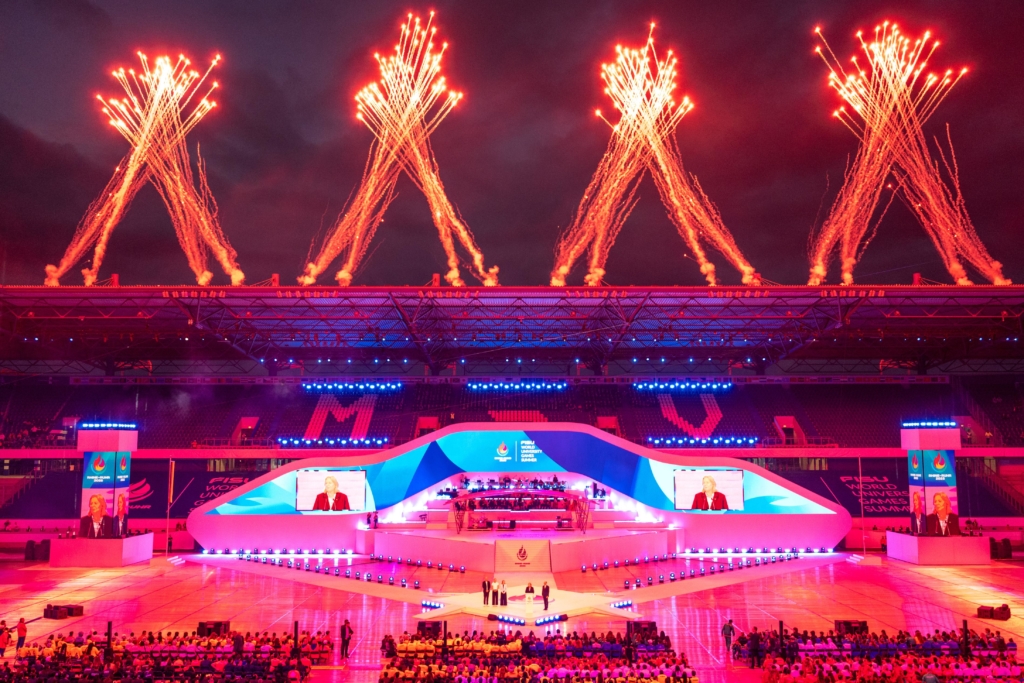
FISU Summer Games Department
At FISU, the Summer Games Department assists and oversees all operational, administrative and logistical support that ensures the success of the largest university multi-sport event in the world.
The FISU Summer Games Department oversees all stages of the FISU World University Games, from candidatures to competition to legacy development. The department serves as the link between the different organising committees, National University Sports Federations (NUSFs) and international sports federations.
The FISU Summer Games team assists the FISU Executive Committee and various FISU committees as they play their very important roles in their respective areas in the management of the World University Games where the transfer of knowledge is paramount.
FISU staff and the FISU World University Games organisers work directly with specific FISU Committees to deliver a successful event.

FISU Summer Sports
FISU World University Games Sports Programme
In 2019, the list of compulsory sports was expanded as Archery became part of the programme. In 2021, Badminton also becomes a compulsory sport. The FISU World University Games hosts may request that optional sports be included in their edition of the event.
Depending on an organising committee’s interests, they may choose up to three optional sports for inclusion into their Games. These sports must come from the list of the World University Championships (WUC) sports programme. For the Universiades in Shenzhen (CHN), Kazan (RUS) and Gwangju (KOR), the total number of sports featured at the events reached 24, 27 and 21, respectively. To reduce the magnitude of hosting a FISU World University Games event for future candidate cities, FISU now holds optional sports to no more than three at each event edition. The Chengdu (CHN) FISU Games featured 18 sports, Rhine-Ruhr 2025 had 19 on their programme including the introduction of a para-sport to drive inclusivity even further.
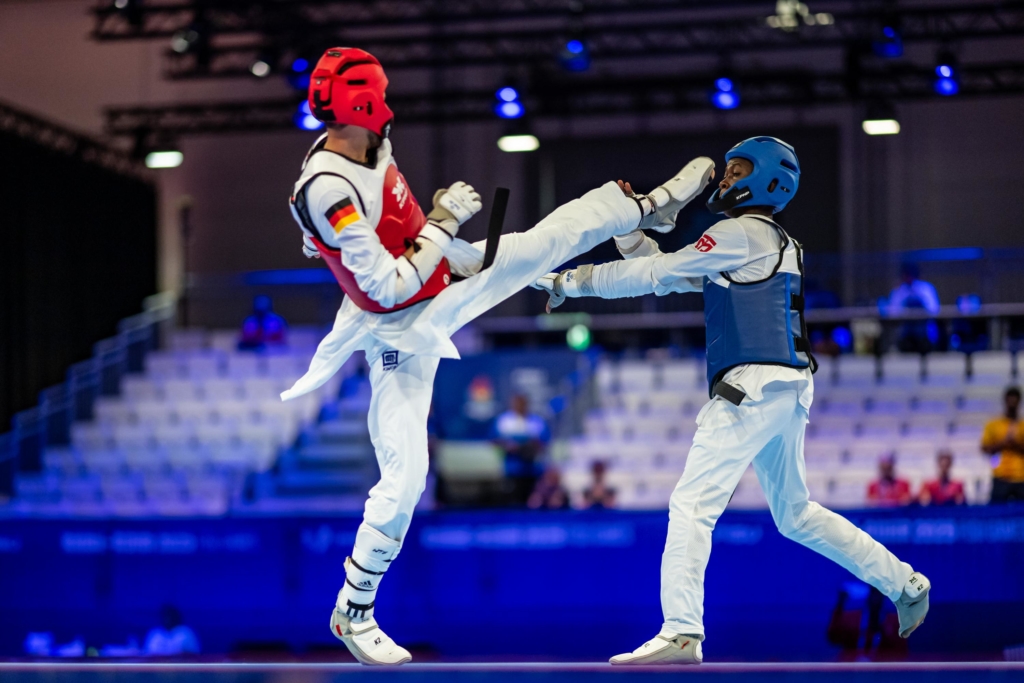
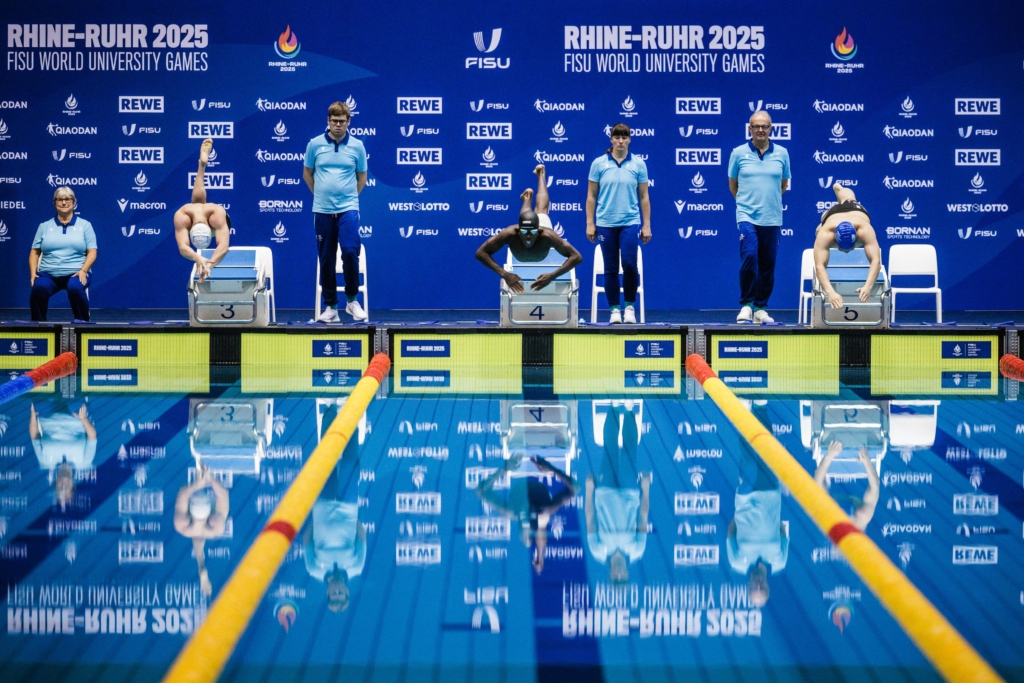

Since the Rhine-Ruhr 2025 FISU World University Games edition, a para-sport was also introduced, where para-student-athletes compete alongside their teammates on the same day and at the same venue. In Germany, it as wheelchair 3×3 basketball.
